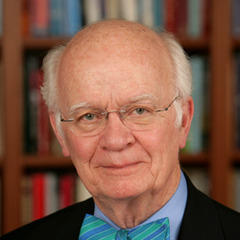Thomas Malthus Quotes - Page 2

Thomas Malthus (2015). “An Essay on the Principle of Population and Other Writings”, p.44, Penguin UK
Thomas Malthus (2015). “An Essay on the Principle of Population: Illustrated”, p.62, eKitap Projesi
"Principles of political economy considered with a view to their practical application". Book by Thomas Malthus, Book II, Chapter I, "On The Progress of Wealth", Section X, p. 414, 1836.
The superior power of population cannot be checked without producing misery or vice.
Thomas Robert Malthus (1959). “Population: The First Essay”, p.13, University of Michigan Press
Thomas Malthus (2015). “An Essay on the Principle of Population and Other Writings”, p.301, Penguin UK
Thomas Malthus (2015). “An Essay on the Principle of Population: Illustrated”, p.16, eKitap Projesi
Thomas Malthus (2015). “An Essay on the Principle of Population: Illustrated”, p.40, eKitap Projesi
THOMAS MALTHUS, JULIAN HUXLEY, FREDERICK OSBORN (1960). “ON POPULATION THREE ESSAYS”
Thomas Malthus (2015). “An Essay on the Principle of Population: Illustrated”, p.14, eKitap Projesi
Thomas Robert Malthus (1959). “Population: The First Essay”, p.4, University of Michigan Press
"Principles of political economy considered with a view to their practical application". Book by Thomas Robert Malthus, Book II, Chapter I, "On The Progress of Wealth", Section X, p. 437, 1836.
Thomas Malthus (2015). “An Essay on the Principle of Population: Illustrated”, p.83, eKitap Projesi
Thomas Malthus (2015). “An Essay on the Principle of Population and Other Writings”, p.171, Penguin UK
Thomas Robert Malthus (1817). “An Essay on the Principle of Population: Or, A View of Its Past and Present Effects on Human Happiness; with an Inquiry Into Our Prospects Respecting the Future Removal Or Mitigation of the Evils which it Occasions”, p.380
Thomas Malthus (2015). “An Essay on the Principle of Population and Other Writings”, p.52, Penguin UK
Thomas Malthus (2015). “An Essay on the Principle of Population and Other Writings”, p.51, Penguin UK
Thomas Robert Malthus (1959). “Population: The First Essay”, p.17, University of Michigan Press
Thomas Robert Malthus “An Essay on the Principle of Population, Or, a View of Its Past and Present Effects on Human Happiness: With an Inquiry Into Our Prospects Respecting the Future Removal Or Mitigation of the Evils which it Occasions”, Cambridge University Press






